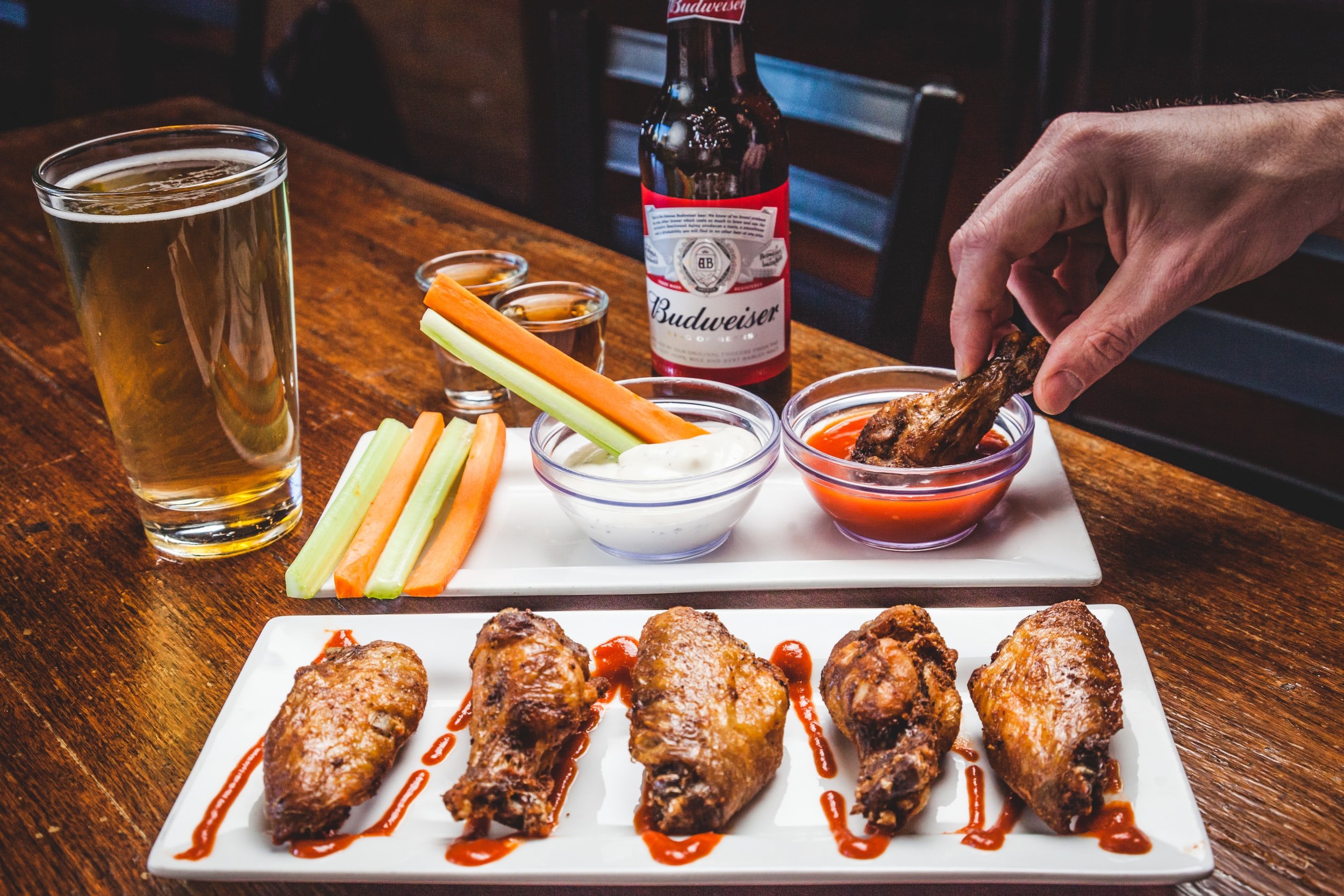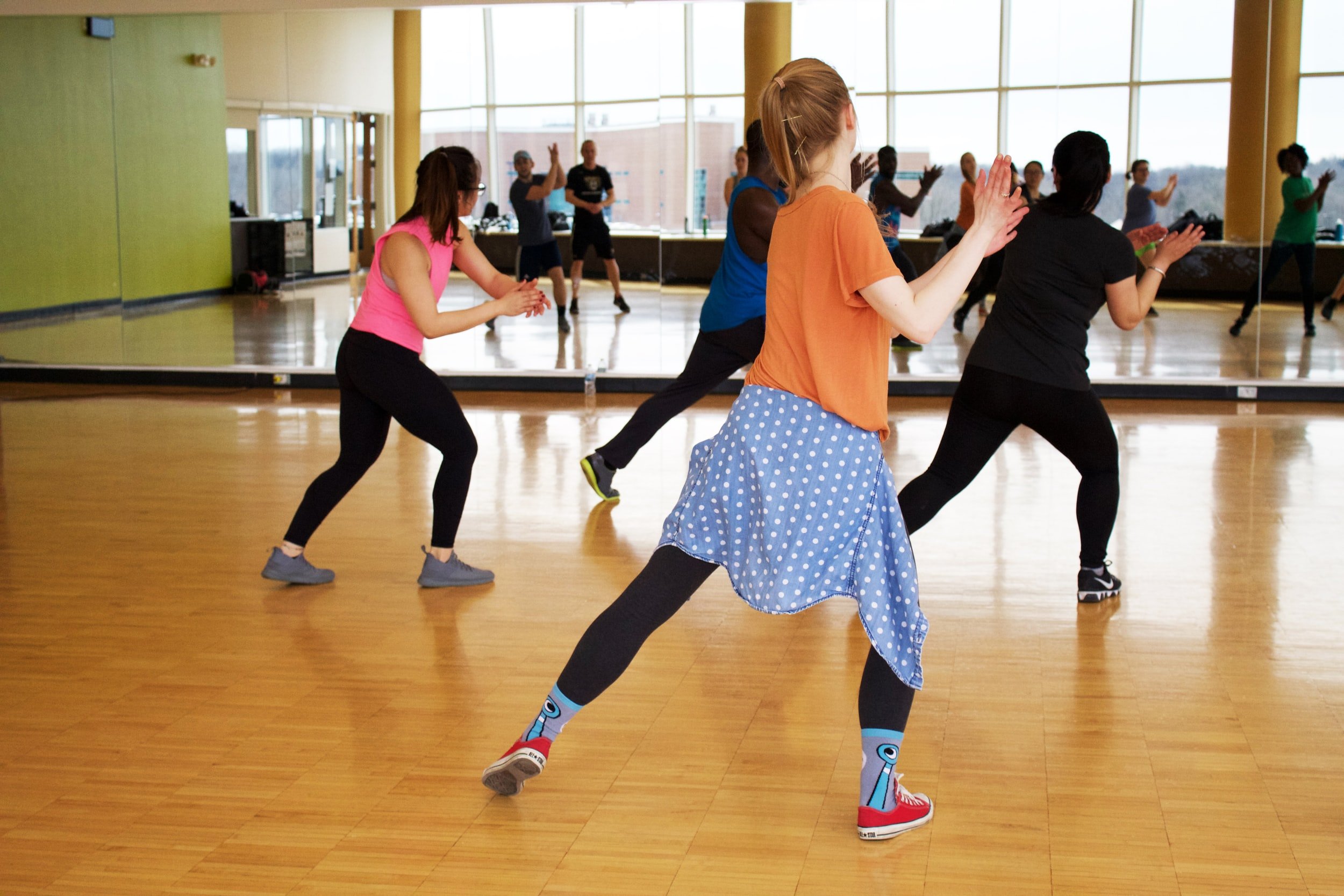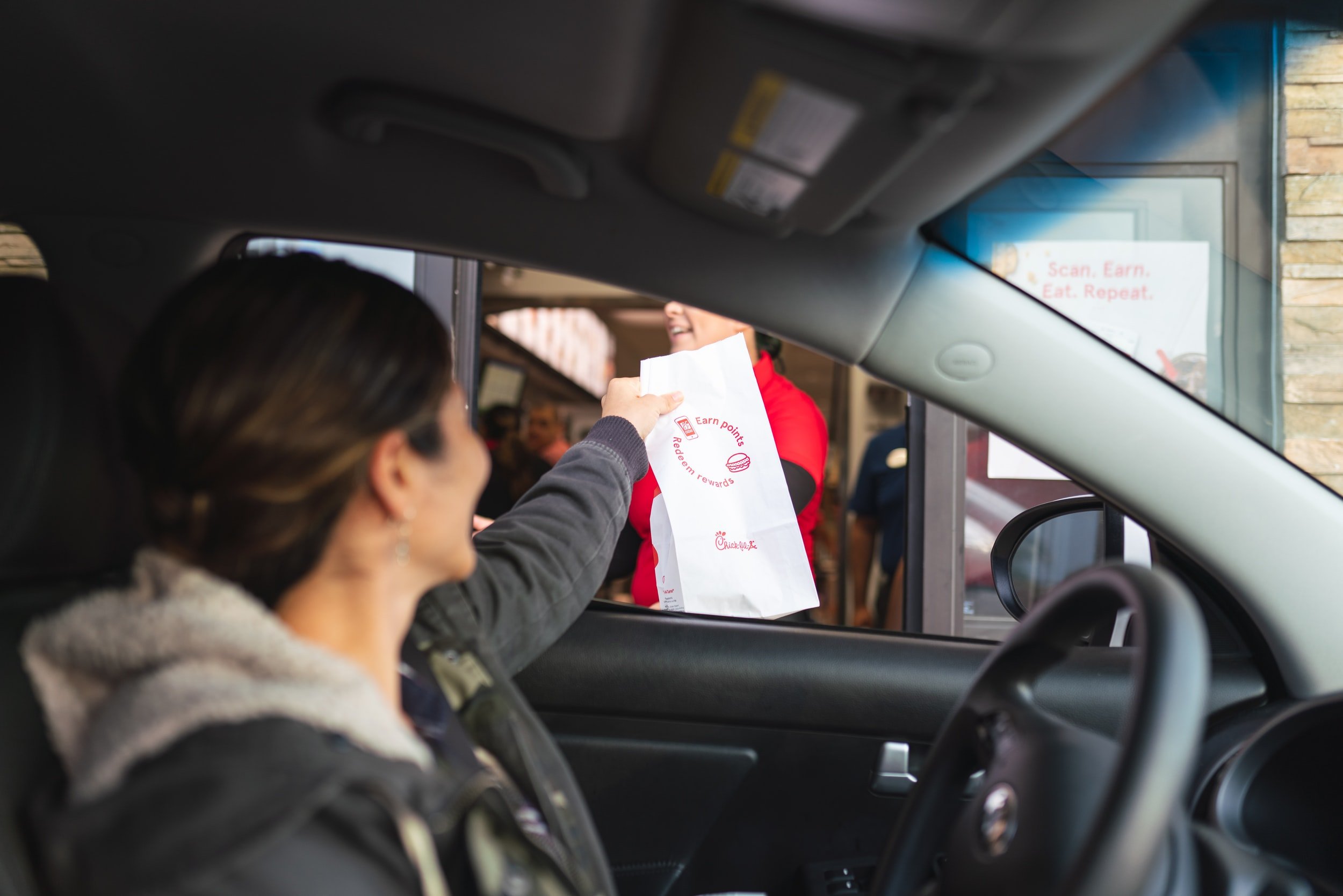If you’re committed to improving your body composition by losing body fat and gaining muscle, there are a few big mistakes you’ll want to avoid at all costs.
In this article, I’ve chosen to highlight four of them.
1 - You’re Being Inconsistent with Your Caloric Intake
Being inconsistent with your caloric intake tops the list because calories are king for fat loss, which means…
You don't have to lift weights to lose fat.
You don't have to run to lose fat.
You don't have to go to group fitness classes to lose fat.
You don't even have to walk to lose fat.
You also don’t have to give up pizza or beer.
But you do have to be in a calorie deficit, which means you can always look to a calorie-controlled diet for fat loss. That one is non-negotiable.
So if you're screwing around with your caloric intake due to a lack of discipline by eating 2,000 calories on Monday, a random 1,400 calories on Thursday because "life got busy," and then 4,000+ on Friday through Sunday because #theweekend, there's a very small chance you're going to be able to make any systematic or sustainable progress toward that lean, hard-body look.
I know a lot of "fitness people" like me like to shy away from saying the hard truths sometimes, but I really think you're wasting your time if you can't find a way to get consistent with your calories.
Do you have to be perfect? Of course not.
In fact, the “perfect” diet doesn’t exist.
But there should be some semblance of consistency when it comes to your dietary pattern if you want reliable results.
Side note: Don’t be the guy or gal who says, “Oh, my diet is consistent alright! I have three Cokes every day and three beers every night like clockwork!”
I’m encouraging you to consistently eat mostly whole foods in modest portions - not excessive amounts of ultra-processed junk foods.
In my opinion, one good way of gauging how consistent your caloric consumption is on a daily basis is to see how well you can answer the question, “So what’s a normal day of eating look like for you?”
If your answer is something like, “I almost always have oatmeal or a smoothie for breakfast. Lunch is usually a tofu salad or a tofu sandwich. And then I usually have some kind of pasta dish for dinner with vegetables. And if I need a snack I tend to grab a piece of fruit or enjoy some peanut butter toast,” then you’re probably doing great.
To be clear, I’m not suggesting that you have to be eating those exact foods, I’m just making the point that it’s probably a good sign if you can speak to that question with specificity and rhythm.
In other words, if you eat similar foods or genres of foods in similar daily patterns, there’s a good chance that you’re being adequately consistent with your caloric consumption.
But if you stumble through that question awkwardly because it depends on the leftovers selection in the office refrigerator and whether your significant other bought Twinkies or Nutty Bars that particular week, your dietary pattern might be worthy of reconsideration if you’re really trying to hone in on that lean, hard-body look.
More specifically, f your goal is lose body fat right away, you’ll need to consistently eat a bit less than your current metabolic needs. If your goal is to gain muscle right away, in most cases you’d be best to consistently eat a bit more than your current metabolic needs.
In either case, consistency in context of your caloric consumption when applied strategically to your specific goal is paramount for successful and sustainable fat loss and muscle gain.
So what’s the main takeaway here?
Make sure you’ve tailored your caloric consumption toward a specific goal and then actually consume that number of calories consistently (even if you’re not tracking them meticulously).
2 - You're Not Eating Enough Protein
The path to improving your body shape in a noticeable way is littered with unexpected difficulties, unwanted plateaus, and lots of demanding training sessions, muscle soreness, and a high level of discipline in both the gym and the kitchen.
Why make it any harder by skimping on your protein intake?
That's always the question I bounce around in my noggin when people push back on the amount of protein I recommend that they consume on a daily basis.
Firstly, know that my protein recommendations aren’t unique or unreasonable.
If anything, they’re much lower than the recommendations of popular experts in the fields of bodybuilding and physique enhancement in that I commonly encourage people to aim for 0.7g of protein per pound of lean body mass.
High-protein black bean pasta
For many, this will seem very low compared to the ultra high-protein diets touted by many, but it’s a position I’m happy to stand by.
In fact, I’ve even updated the original content of this very article to better convey my current opinion on protein consumption, which is…
That you need an adequate amount for muscle growth and nothing more.
I used to be of the opinion that protein was the “most important” macronutrient for a body recomposition goal because it:
Maintains and builds new muscle tissue
Tends to satiate us more than other foods, which can lead to improved diet adherence
Has the highest thermic effect of food which means it requires more energy for your body to burn
But now I find that position to be narrow-minded and a bit heedless in context of a bigger body recomposition picture that includes that importance of carbohydrates and fats.
I might compare it to being asked what is the “most important” feature of a car: the engine, the wheels, or the steering mechanisms.
It doesn’t take most people too long to realize that the question is nearly impossible to answer because…
All of those features provide essential value to the overall function of the vehicle.
In this particular example, I think most people would be tempted to think of protein as the engine because it seems to come first in the chain events.
In other words, being able to turn on the engine seems like the “most important” thing because the car can’t go anywhere without the ignition.
At the same time, it won’t do you much good to have the engine running if your car is sitting on cement blocks without wheels or tires.
And, of course, something similar could be said of sliding into the driver’s seat to find yourself without a steering wheel (even though you’re smuggling 500 HP under the hood with a fresh set of tires that would make even the Michelin man blush).
In some sense, everything works synergistically toward the same goal of moving from Point A to Point B, which I how I feel about the relationship between protein, carbohydrates, and fats when it comes to trading in unwanted body fat for lean tissue.
So what’s my point?
Protein is important in the sense that you need an adequate amount to support muscle growth, but healthy carbohydrates and fats are important too (not to mention fiber).
That being said, the focus of this segment of the article is to make sure you’re eating at least 0.7g of protein per pound of lean body mass.
Once you have that in place, you can focus intensely on the quality of your training.
3 - Your Training Style Isn’t Conducive for Muscle Growth
This is a big one for obvious reasons.
If your goal is to lose body fat and build muscle but you aren’t training in a way that supports fat loss or muscle growth, what are you doing?
To be fair, I sincerely believe that most people don’t know any better.
They assume that all kinds of training methods can build muscle, but this is a classic point of confusion between general health, fitness, and “looking hot.”
To spare you the nuance, this is what you need to know in two brief points:
Lots of training methods are good for building some muscle, but some are much better than others.
I think the lowest hanging piece of fruit here is the infamous group cardio class.
Need a mental picture? Picture 15-20 men and women in a room with a bunch of mirrors doing half-burpees, half-lunges, and shoulder presses with pink dumbbells. And I’ll admit I feel a bit dirty for positioning it so poorly, but group cardio classes strike a sensitive nerve in my body recomposition brain because they just don’t work very well if your goal is to look lean and muscular, (which is an extremely important caveat).
If your goal is improved general health and fitness, knock yourself out! I couldn’t be more supportive of group cardio classes for people with non-aesthetic goals. You’re just very unlikely to see meaningful improvements in your physique by going to “gen pop” group cardio classes.
Other examples could be boxing, yoga, or spin classes.
All by themselves, they just aren’t going to build you any impressive amount of muscle. Will they help you lose fat, build a small amount of muscle, improve your mobility, and boost your heart health? Yes! But you probably won’t be looking markedly jacked and lean at the pool.
Side note: If you’re currently reading this an enthusiast of one of these training methods or fitness activities, please don’t be offended! I love and appreciate exercise of all kinds, but the focus of this article is on how to avoid mistakes for drastically improving your body composition through added muscle mass and decreased body fat.
Lastly, if you love boxing or yoga but you want to be more jacked too, just added resistance training into your routine, which brings me to my second point.
You grow muscle best by weight training within a few reps of technical failure mostly in the 6-20 rep range.
Really, this is the advice you need to take to the bank and cash-in on.
Lift heavy with as many sets as you can recover from as often as possible while getting modestly stronger over time.
So what’s the point here?
Make sure your training methodology is known for producing the physique you’re personally looking to achieve.
4 - You Let Small Obstacles Get In Your Way
One of my favorite mottos with regard to losing body fat is not to let perfection become the enemy of progress, and I mean that sincerely.
Perfection when it comes to dieting for any body recomposition goal is largely a fallacy, but I also think it's important not to give yourself too much grace.
And here I go putting myself at risk of being canceled…
Stick with me for a moment.
In my personal opinion, grace is really good thing to give freely in life. Your spouse needs grace, your friends need grace, and you need grace.
I need grace.
But, there's a difference between giving ourselves grace in moments of true need and making excuses for not doing what needs to be done.
For example, if you're a mother of three and one of your workouts has to be moved because your youngest comes down with a fever and needs some motherly attention, that seems like a legitimate reason to give yourself grace to miss that workout, love and care for your child well, and make plans to do that workout tomorrow instead.
But here is a quick list of three excuses I could see people making.
Are you ready for a series of hot takes?
"All I had on me was a protein bar, so I had to get fast food for lunch."
First of all, a protein bar is a great option in a pinch! What's wrong with eating a protein bar?
Secondly, the language here says a lot. You "had" to get fast food for lunch. No, you didn't. You were not the victim of the universe here - you just made a decision that valued your immediate comfort and preference over your body recomposition goal.
I’m not trying to rip this person’s head off, but this is classic example of an “excuses mentality.”
"I'm having a hard time meeting my step goal on Mondays because The Bachelor comes on at 7PM."
Girl, I watch the Bachelor too! You just need to plan accordingly. As far as I know, the Bachelor comes on at 7PM every week without surprise. Get up early. Stay up late. Snag 2,000 steps over your lunch hour. Get it done, you know? That's much more of an excuse to me than a legitimate reason to be set back.
"I didn't get groceries this week so my protein has been way off."
Dude, go to the store! There is such a simple solution here. At the same time, I know what it's like to run out of groceries and be in a pinch when it comes to needing a high-protein meal.
Me personally? I consider it self-imposed “punishment” for poor planning and laziness, so I'll make myself go buy a nice, protein-dense meal. For me, this usually means hopping over to Chipotle.
Long story short, I find that the people who are constantly eager to let relatively insignificant obstacles knock them off track are the ones who have a hard time achieving their body recomposition goals.
Does it mean you're wasting your time? Not necessarily. But I think it's worth a look in the mirror and asking yourself, "What are we doing here? Are we doing this or not?"
Summary
Firstly, please do your best not to be offended by this article. My intention is purely to help and never to harm, but I’ve been known to have a direct tone at times.
I'm just speaking to trends I’ve seen anecdotally among unsuccessful people: the people who lose 20 pounds and then gain back 30, the people who bounce from fad diet to fad diet, or even the people who mean well but just can't get their habits and behavior in check for long enough to see a difference.
The solution to avoiding all of these things?
Do your best to take extreme ownership of yourself, your lifestyle, your journey, and your results.
In summary, here are the four big mistakes I referenced in this article:
Avoid being wildly inconsistent with your calories. The key to both losing fat and gaining muscle is eating a strategic amount of food tailored toward a specific goal.
Avoid eating an inadequate amount of protein. In most cases, it will be more the sufficient to consume 0.7g of protein per pound of lean body mass.
Don’t make the mistake of picking a primary training methodology that doesn’t support your goal of losing fat and building muscle. Resistance training usually produces the “best” and “most attractive” physical results.
Don’t make unnecessary excuses for not doing the things you need to do to achieve your goal.
I really enjoyed writing this article, so if you found it helpful, do me a favor and send it to someone in your life who finds body recomposition banter just as entertaining as you do.
Until next time,
-Andrew











